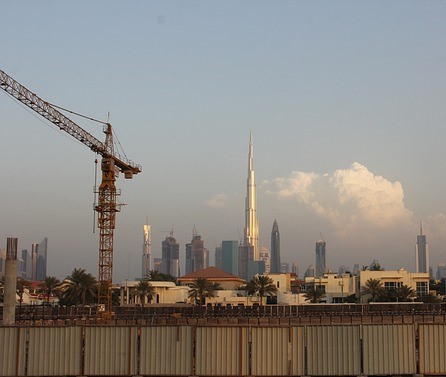The knowledge-based economy in the Arab World
- The Arab Spring was in part a result of people buying into the Arab Dream that ultimately gave rise to a feeling of disappointment
- While economic development met the needs of citizens during the uprisings, it failed to deliver on physiological needs
In so far as a similar global economic development narrative based on the transition to knowledge-based economies and accompanying high wage, high skill jobs was perpetuated by the engagement of the World Bank and UN with the Arab World in the early Nineties, a similar opportunity bargain as that in the West emerged in the Arab countries.
In addition to high skill, high wage job creation, however, the Arabization of the concept of knowledge-based economy infused economic development with a host of other development issues such as economic integration and diversification, innovation, entrepreneurship, education and training system reform, environmental sustainability, identity, language, gender equality, and political participation and democratic reform.
With its association to human capital development, the concept of knowledge-based economy created a convincing economic development narrative that met the psychological needs of Arab citizens but, as evidenced by the Arab Spring, clearly missed the mark on delivering on physiological needs.
Broken Promises of the Arab Opportunity Bargain
Although there are few regional public opinion surveys that can provide an indicator of the effectiveness of Arab governments to deliver on the opportunity bargain that has become enmeshed with the Arab Dream, a recent survey of 16,000 citizens across 21 countries in the Arab World shows several sources of breakdown. Carried out in late 2010 and early 2011 before the Arab Spring reached it boiling point, the survey provides a baseline indicator of several seeds of discontent that point towards unfulfilled promises associated with the pursuit of knowledge-based economy in the Arab World and a broken Arab opportunity bargain.
In many countries, citizens indicated that they would prefer to migrate to realize their dreams elsewhere.
Particularly in the less wealthy Arab countries outside the Gulf, respondents described an Arab World that is not amenable to finding employment; lacks effective education systems; which offers few opportunities for youth to get ahead through hard work; faces a dismal outlook for economic growth; and offers a difficult path to reaching life milestones such as securing affordable housing (Silatech 2010).
Securing a Viable Arab Dream
How Arab governments respond to the broken regional opportunity bargain following the Arab Spring could make the difference between a lost generation of youth plagued by chronic unemployment and social marginalization as well as significantly impact future generations. Disaffected youth have the potential to become a perpetual thorn in the side of Arab nations as youth bulges experiencing economic hardship have been linked with political violence. Discontent amongst Arab youth based on an evolving opportunity bargain that no longer promises free education, a public sector job guarantee, and state support could severely compromise ambitious economic development plans.
The Arab Spring was a very tangible reminder that securing a viable Arab Dream is a major issue of concern to regional governments.
The Arab Spring was in part a result of people buying into the Arab Dream, investing their time and money in education, but then subsequently finding that their credentials and hard work does not allow them to fulfill their dreams of gainful employment and achievement of accompanying social and economic advancement. The Arab Dream is grounded in a regional pursuit of knowledge-based economic development driven by policies that envision the emergence of high skill, high wage economies that will create jobs. However, the global availability and growth of low cost, high skill workers potentially threatens the viability and economic fundamentals of sophisticated, innovation-driven knowledge-based industries taking root in the region and devalues the credentials of skilled workers. If knowledge-based industries fail to take root and lead to employment, many of reforms and money spent on higher education expansion, education quality, R&D ecosystems, and entrepreneurial growth could be deemed inappropriately spent.
The Arab Dream is grounded in a regional pursuit of knowledge-based economic development driven by policies that envision the emergence of high skill, high wage economies that will create jobs.
The Arab Spring was a very tangible reminder that securing a viable Arab Dream is a major issue of concern to regional governments. The Arab Dream must include a revised opportunity bargain which factors in how the marginalized whose voices came to a boil in the Arab Spring can have access to livelihoods. Creating this opportunity bargain requires not just benchmarking and replicating the economic development trajectories of wealthy, developed countries but also being aware of the vulnerability Arab economies face in an era of globalization and the emergence of high skill, low wage knowledge workers that have changed the fundamentals of knowledge-based industries.
Disaffected youth have the potential to become a perpetual thorn in the side of Arab nations.
While some Arab countries are more suited to competing in a high skill, low wage global economy, other Arab countries which are unable to compete in high skill, high wage knowledge-based industries will need to adequately calibrate the expectations of their citizens regarding the types of jobs which will be available in the future and the likely instability of salaries due to wage compression from competing low wage, high skill workers. Efforts to privatize education attainment so that labor market success or failure passes the burden on to individuals are prone to market failure without sufficient demand for skills from the labor market.
Short term, quick fix government payouts to solve the problems with the broken Arab opportunity bargain are also likely to fail.
Arab governments will have to take a hard look at the economic counsel they have received over the last two decades to judge its worth in securing the economic interests of the region. Reforms to reinvigorate the Arab Dream must challenge the assumption that more education is always the answer, reconsider the full employment promise which hampers global competitiveness, reduce wage inequality to ensure equal distribution of wealth, and determine the Arab world’s position in an global economy with emerging low cost, high skill competitors that challenge knowledge-based economic development both in the developed and developing world.





































